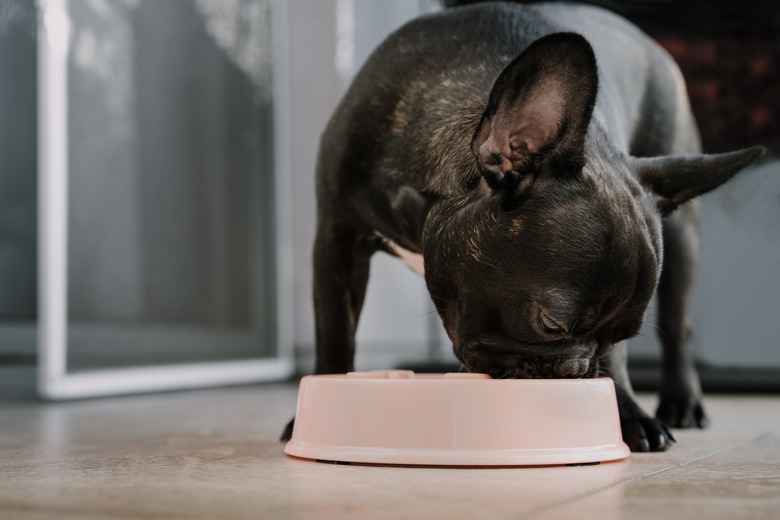What Can You Feed A Dog To Firm Up Their Stool?
Hopefully, we all know to scoop our dog's poop by now, but how do you do that when it's not an easy consistency to pick up? More importantly, why do dogs have runny poo or soft stool from time to time? Soft stool in dogs can be symptomatic of a number of things, from eating something disagreeable to contracting an illness that may require medical intervention. For the less serious cases, you can get your dog's bowel movements back to normal by feeding him specific foods, namely, bland diets.
Causes of Loose Stool
Causes of Loose Stool
Loose or soft stool in canines is usually the result of dietary changes, like switching to a new formula of kibble, or eating too much of an item that's not a usual part of your dog's diet. If your dog has diarrhea, it may be attributed to diet, or other culprits may be to blame, like allergies, viral infections, or intestinal diseases, says VCA Hospitals. Whatever the case, loose or wet stool can lead to dehydration, so be sure to keep plenty of fresh water available for your canine to drink, especially if she's losing a lot of moisture to diarrhea.
Natural Stool Hardener for Dogs
Natural Stool Hardener for Dogs
In many cases, like if your dog is simply adjusting to a new diet, soft stool will only last for a few days, and can be made a little harder with certain foods. The American Kennel Club cites white rice, rice water, probiotic-rich yogurt, unsweetened canned pumpkin, skinless, unseasoned chicken, boiled potatoes, and herbs like fennel as natural stool hardeners for dogs.
If your dog has had loose stool for more than a few days, or if this is a chronic issue for him, there are medications that can help as well. Metronidazole, which is commonly used to treat bacterial infections, can also be used as a stool hardener for some dogs by working as an anti inflammatory for the large intestine, which may reduce diarrhea. Additionally, unflavored Metamucil may help dry up wet stool, just be sure to consult your vet first. To maintain electrolyte balance in dogs who may have severe diarrhea, and the dehydration that often comes with it, the children's medicine, Pedialyte, can also be used.
Preventing Diarrhea in Dogs
Preventing Diarrhea in Dogs
According to the American Veterinary Medical Association, digestive issues resulting in loose or soft stool may be the result of contagious diseases contracted in social settings, like dog parks or boarding facilities. To protect your dog from potential illnesses, be sure to keep her updated on all necessary vaccines and medical checkups, and don't allow her to enter shared areas if you notice symptoms of a viral infection, like vomiting or diarrhea. If your dog enjoys walking on or playing in grassy areas, keep an eye out for posted signs that the area was recently treated with pesticide or fertilizer and don't allow your dog to play in that area if you do see any, as certain chemicals can be toxic to canines.
If your dog has soft stool due to dietary reasons, like changing her food, you can reduce discomfort by adding small amounts of the new food into her usual formula, and adjust the ratio over the course of a week or two until she's eating entirely new kibble. Finally, if table scraps are a thing you allow your canine companion to enjoy, be sure to discontinue those specific snacks that may lead to soft stool, which will be different for every dog. If you notice diarrhea for several days you should contact your veterinarian, especially if it is also seen with lethargy, vomiting, dehydration, or if your dog seems generally unusual.
Always check with your veterinarian before changing your pet's diet, medication, or physical activity routines. This information is not a substitute for a vet's opinion.
